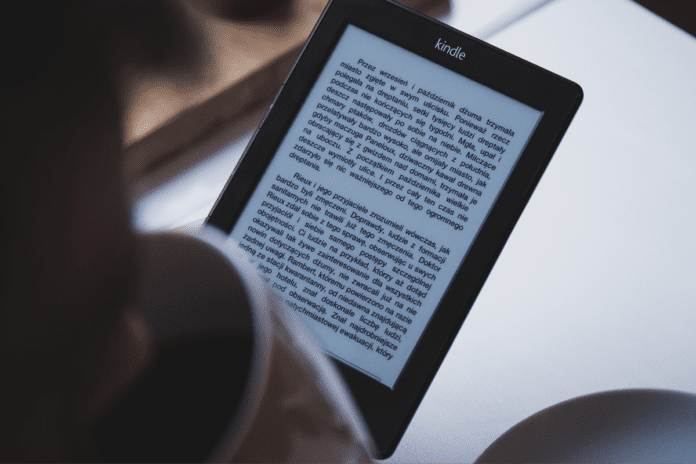Stories That Shape the Heart
Reading has always done more than pass the time. A well-told story gets under the skin. It lingers. It cracks something open inside. E-books have carried that quiet power into the hands of anyone with a screen and a sliver of free time. The heart learns through fiction. Characters who wrestle with grief fear or joy teach without preaching. A slow-burn romance or a bittersweet coming-of-age tale often says what daily conversation cannot.
Reading this way is not a soft escape. It becomes a kind of mirror. The books that truly shift things usually arrive without warning. A paragraph lands like a punch. A chapter echoes something buried. Emotional growth often starts with that silent recognition. And once seen it cannot be unseen.
Fiction That Grows Empathy
Some books turn the lens outward. They walk through other lives one step at a time. Not all are grand or epic. Some are quiet domestic tales or glimpses into overlooked communities. They matter all the same. Empathy does not demand agreement. It only asks for understanding. Fiction offers that window. It opens the door to perspectives that feel far away until they are not.
One powerful example is “A Man Called Ove” by Fredrik Backman. The protagonist is prickly bitter and wrapped in routine. Yet something unravels inside him and inside the reader. Or “The Color Purple” by Alice Walker. The story is raw, personal and painful but also healing. The words land with weight. They leave behind a changed sense of what pain and love can look like.
Open Library, Library Genesis and Zlibrary form a quiet backbone for this emotional learning. They host thousands of titles that may never make it to a glossy bookstore table but still spark growth. Through them readers stumble upon stories that dig deeper than expected.
E-Books That Stay Long After the Last Page
Some books do not end when the screen dims. They stay. They haunt. They spark thoughts days or weeks later while waiting for a bus or making toast. These are the titles that leave emotional fingerprints. They may not be bestsellers or award-winners but they shape inner worlds all the same.
Consider books that take familiar struggles and make them feel new. “Eleanor Oliphant Is Completely Fine” by Gail Honeyman unpacks loneliness without once asking for pity. It shows a woman learning to connect without neat resolutions. Or “Shuggie Bain” by Douglas Stuart which paints a hard life in sharp unflinching strokes. These books sit heavy but not without hope.
To dig deeper into this kind of emotional journey consider this selection:
1. “The Midnight Library” by Matt Haig
This novel straddles fantasy and reality. It explores regret without melodrama. The main character Nora finds herself caught in a space between life and death where she gets to try out other versions of her life. Each chapter nudges her closer to self-acceptance. The book handles big themes like mental health loss and purpose with a feather-light touch that never feels forced.
2. “The Perks of Being a Wallflower” by Stephen Chbosky
A coming-of-age story with teeth. Told through letters this novel captures the awkward blur of adolescence. Charlie is not a polished narrator. His voice is raw hesitant and full of unspoken pain. That honesty cuts through. It shines a light on friendship abuse grief and the quiet triumph of surviving it all. The story does not tidy things up. It lets emotion breathe.
3. “Normal People” by Sally Rooney
This one walks a fine line between love story and emotional excavation. Connell and Marianne stumble through miscommunication, shame and longing. What makes it powerful is what stays unsaid. Rooney writes dialogue that feels like real speech not crafted lines. Readers are pulled into their world watching not just what they say but what they cannot say.
4. “Small Great Things” by Jodi Picoult
A legal drama on the surface but underneath it stirs deep reflection. The story follows a nurse who is told not to touch the newborn of a white supremacist. Then a tragedy unfolds. What comes next is not just a courtroom tale but a study in privilege guilt and silence. It asks hard questions and waits patiently for the reader to wrestle with the answers.
E-books make these titles more reachable. No need for shelf space or long searches. These stories become travel companions always ready in a pocket or bag. They meet readers where they are emotionally and physically.
The Quiet Work of Healing
Reading for emotional growth is not a self-help task. It does not come with checklists or bold headings. It arrives in unexpected lines and characters who say what no one else dares to say aloud. Healing often begins with seeing something true on a page. That small recognition shifts something. It starts a ripple.
Some stories do the hard work with tenderness. Others force a reckoning. And a few do both. They leave behind a changed person not through advice but through presence. The character stays. The story lingers. The feeling remains just under the skin long after the e-book closes.








